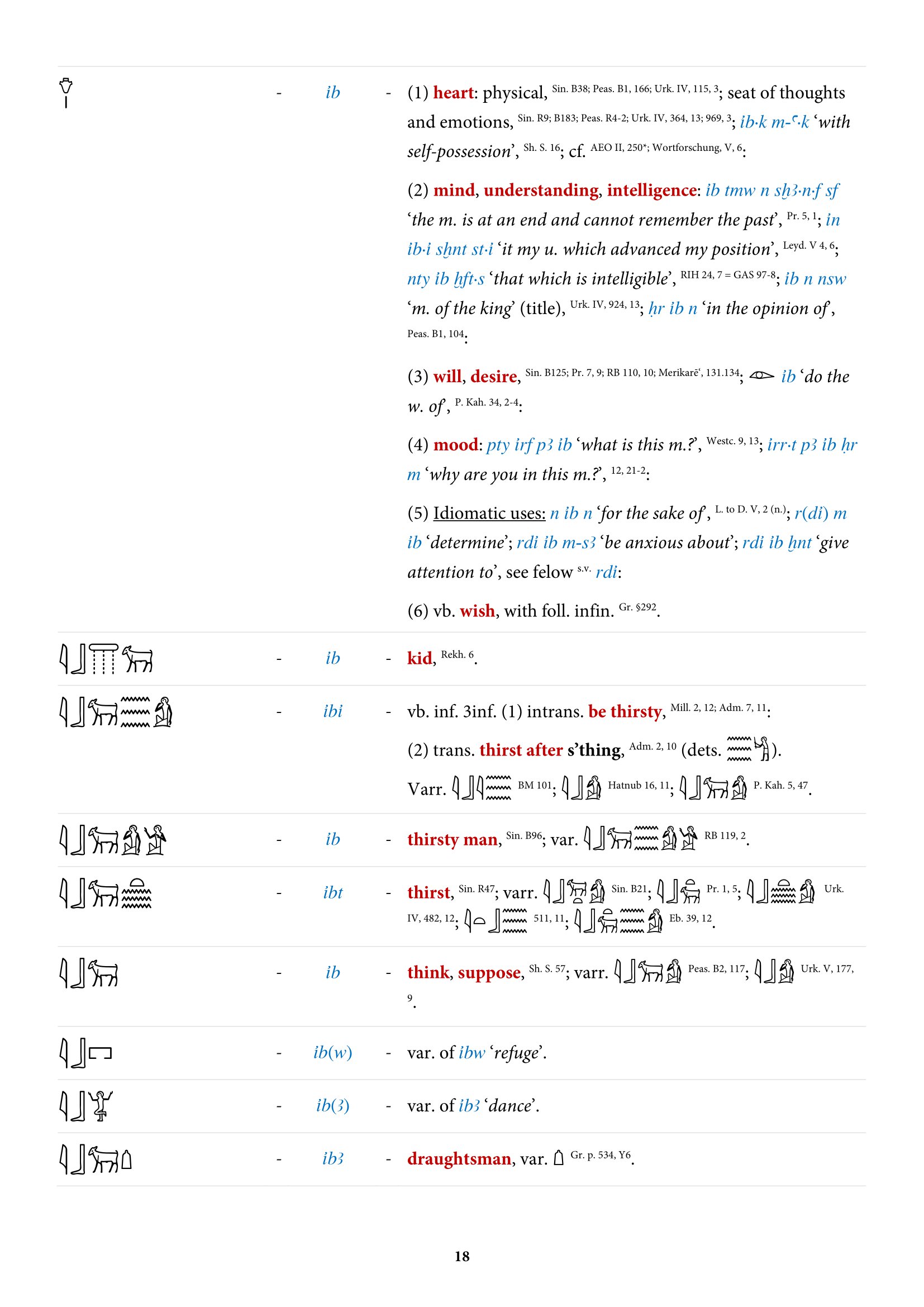Definition of "Ib"
Source: A Concise Dictionary of Middle Egyptian
S.v., ib
| 1. | n. |
heart: physical; seat of thoughts and emotions; ib·k m-ꜥ·k "with self-possession" |
| 2. | n. |
mind, understanding, intelligence: ib tmw n sḫꜢ·n·f sf "the mind is at an end and cannot remember the past"; in ib·i sḫnt st·i "it my understanding which advanced my position"; nty ib ḫft·s "that which is intelligible"; ib n nsw "mind of the king" (title); ḥr ib n "in the opinion of" |
| 3. | n. |
will, desire: 𓁹 ib "do the will of" |
| 4. | n. |
mood: pty irf pꜢ ib "what is this mood?"; irr·t pꜢ ib ḥr m "why are you in this mood?" |
| 5. |
Idiomatic uses: n ib n "for the sake of"; r(di) m ib "determine"; rdi ib m-sꜢ "be anxious about"; rdi ib ḫnt "give attention to" |
|
| 6. | v. |
vb. wish, with following infinitive. |
Faulkner, CDME, 18. [View as image] [Read on OMNIKA]
Page Image(s)

Example sentences
Coming soon.
Citation
PsychLing Contributors. "Ib." PsychLing, OMNIKA Foundation, 25 Jul. 2023, psylng.org/mli/afro/egy/ib. Accessed 20 Feb. 2026.
Bibliography
Faulkner, Raymond O. A Concise Dictionary of Middle Egyptian: Modernized by Boris Jegorović. Edited by Boris Jegorović. Oxford, United Kingdom: Griffith Institute, 2017.
Internet Archive Contributors. "Wayback Machine." San Francisco, CA: Internet Archive. Created October 24, 2001. Accessed July 21, 2023. https://web.archive.org. [Visit]
Takács, Gábor. "Layers of the Oldest Egyptian Lexicon I." Rocznik Orientalistyczny 68, no. 1 (2015): 85–39.
Wales, Jimmy D., et al. "Wiktionary: The Free Dictionary." San Francisco, CA: Wikimedia Foundation, Inc. Created December 12, 2002. Accessed July 28, 2023. https://wiktionary.org. [Visit]
PsychLing MLI
*lib- is a reconstructed root from the proto-language known as Proto-Afro-Asiatic. Scholars believe that it means "heart."
Read morePsychLing MLI
Ancient Egyptian is a language that belongs to the Afro-Asiatic language family.
Read morePsychLing Glossary
Language is a term in
PsychLing Glossary
Language Family is a term in
PsychLing Glossary
Proto-Language is a term in
PsychLing Glossary
Psycholinguistics is a field of study that concerns the scientific study of the relationship between human behavior and language.
Read morePsychLing Glossary
Reconstruction is a term in
 ·
·

